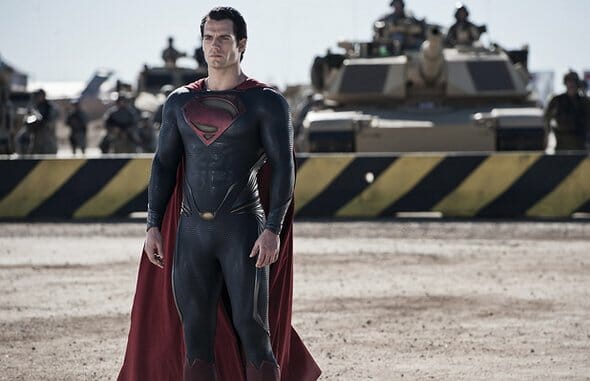Man of Steel

Conventional industry wisdom (or, if not wisdom, then sustained chatter and idle speculation) suggests there’s a lot riding on Man of Steel, the latest cinematic iteration of Krypton’s favorite son. For the folks at DC Comics (now DC Entertainment, part of Warner Bros. and Time-Warner), it must be galling to watch their longtime competitor, Marvel Comics (now Marvel Worldwide and owned by Disney) launch franchise after franchise into the stratosphere while, with the exception of a certain bat-themed vigilante, their own stable of heroes seems unable to get off the ground. Even putting aside the billion-dollar Whedon-helmed Avengers, Marvel just appears to be getting stronger, with Iron Man 3, powered by the Incredible Downey Jr. Man, about to surpass the global box office of its two predecessors combined. Though it remains to be seen how well the second Thor and Captain America films will fare, it can’t be denied that Marvel is well into the race while DC is tinkering with the engine in pit row.
While this failure to launch must be frustrating for the execs at Time-Warner, it’s equally so for fans of the DC universe who want to see the Justice League with all its iconic (Supes, Bats, Flash, Wonder Woman) and not so iconic (Aquaman!) characters in action on the Big Screen. Nolan’s Dark Knight films notwithstanding—look to Batman for exceptions, not rules—the last two DC ventures were pretty unimpressive. Bryan Singer’s 2006 Superman Returns sported an overly meditative first act hobbled by a derivative, boring third act, and 2011’s Green Lantern proved that crappy storytelling is a bigger threat to the emerald knight than any amount of yellow.
So there was plenty of reason to anticipate and root for the Man of Steel as a fresh start both for the character and the universe.
If only this fresh start didn’t stink so much.
-

-

-

-

-

-

-

-

-

-

-

-

-

-

-

-

-

-

-

-

-

-

-

-

-

-

-

-

-

-

-

-

-

-

-

-

-

-

-

-








































